Brain-Computer Interface, and Brainternet [Linking biology with technology]
Introduction
As this era advances in complex technological evolution, the fine line dividing biology and technology keeps blurring out. There has been a speculation that humans are evolving alongside their devices. Well, I believe that as the abilities and complexities of the post-modern computers develop alongside the understanding of the human brain, we would be drawn closer to finally blurring out the dividing line between biology and technology. And one of such technologies to achieve this is the "Brain-Computer interface" (BCI).
[Image Source: Pixabay]
Concept of BCI
Have you ever imagined transmitting signals directly from your brain into a computational device without passing through any intervening medium? Well, that is what BCI is all about.
Brain-Computer interface is the technology that can communicate with neural structures by encoding, decoding, and translating information in form of signals from the human thought. Source. [Paraphrased by me]
The coining of the term "BCI" has been credited to Professor Jacques J. Vidal in the early 1970s, and ever since then, it has seen astronomical advances. For easier understanding of this survey; I will be sub-categorizing the concept of BCI.
The Brain Signal
The main reason behind the working of the BCI is because of the manner in which the human brain functions. We've already known that the human brain is filled with some nerve impulse-transmitting cells (neurons) which transmit electrical impulses within the brain.
Now, this is exactly where the technology of BCI has leveraged on. Because these brain signals are transmitted in form of electrical impulses, it can be picked "electroencephalographically". But the question is, how does the brain transmit these signals to a computer device? This question will lead me to the types of BCI; and of course, the transmission pattern in each of them.
Types of BCI
Before I proceed, let me drop a little tree diagram that I made; as an instructional material for better understanding.
[Image Source: Home made by me @samminator]
1. Non-Invasive BCI
Yes! I chose to start from the non-invasive BCI because it is one of the earliest breakthroughs in the technology of BCI, and it works on the technology of EEG (electroencephalogram). You won't be wrong to call this the EEG-Based BCI.
How does it work? Very simple; an EEG headgear is usually worn by the individual. The work of this headgear is to read and pick up the brain signals in form of electrical impulses, which is then transmitted to a computer device for processing and interpretation. Note: No surgery is required here.
[Image Source: Pixabay]
The signal generated in this type of BCI could be interpreted in form of images or just plain stimulus signals which can include; auditory signals (signals relating to sound), visual signals, tactile signals, gustatory signals, and even olfactory signals.
Though this type of BCI is the easiest; because the interface can be worn and removed at will; the signals generated here is fairly poor. This is due to the fact that the skull has a dampening effect on the transmission of signals. Because of this impedance to signals, another option had to be sought out for.
2. Partly-Invasive BCI
In this type of BCI, the need for EEG headgear is completely sidelined, as the BCI devices (signalling electrodes) are surgically implanted directly into the skull. Note; it is implanted outside the brain, but within the skull (hence; the name "partly-invasive").
In contrast to the non-invasive BCI that uses the EEG technology, the partly-invasive BCI uses the ECoG (Electrocorticography) which also has similar function, only that the ECoG detects the brain activity and signals from inside the skull. Though this one produces better signals than the non-invasive BCI, there is also another type that produces a high resolution frequency signal.
3. Invasive BCI
In this type, the BCI devices are surgically implanted right inside the brain's grey matter. And yes; it produces the best signal quality. But of course; the invasive BCI has its own perks: Firstly, it carries a bigger risk. Also, scar-tissues can be built up over time in the BCI electrodes, and can weaken the signals with time. Finally, there is a risk of rejection by the brain.
[Image Source: Wikimedia Commons. Author: Paul Wicks. CC licensed]
So, as it were, the partly-invasive BCI has been seen to have taken a center-stage and preferred to both the invasive and the non-invasive types. The reason being that; it carries lower risk than the invasive BCI, and also provides better signals than the non-invasive BCI.
Applications of BCI
There are numerous applications of the BCI, but I will take a few; as they relate to emerging technology.
Brainternet
Now we are aware of the emerging technology of IoT (Internet of Things) in which every of our devices will be linked together to a single internet hub. Now that the neurofrontiers and BCI technologies are advancing, the human brain can also be linked to the Internet of Things. The idea here is to create the possibility of accessing the internet directly from the brain; and of course; controlling of other internet-enabled devices directly from the brain.
Imagine a case where you're lost of direction, you can access the local gps directly from the brain. This is one of the things that brainternet can offer. There are other possibilities too.
Controlling of industrial machines
Have you ever imagined the possibility of controlling factory robots (for example; car assembling robotic arm) just with the mind? Okay, this is not science fiction, as the possibility has arrived.
Instead of making factory machines fully automated, it could be better to incorporate a human-driving force into them to manage their functionality. And this can be achieved through the BCI technology.
Mind-control prosthetics
Yeah! This is exactly where the mind of many would go as the application of BCI. Controlling of either bionic arm or limb with the mind is an emerging technology that has come to shimmer rays of hope on the path of people with decapitated arms or limbs.
[Image Source: Wikimedia Commons. CC licensed]
Brain Telepathy
This is also one of the potential applications of BCI. Here, people would be able to communicate within themselves directly from the brain without speaking a single word (Lol, this is not magic; it is technology). The signals would be transmitted from the sender's brain via the BCI device into a computer system for processing. The computer will then relay the information to the receiving brain (and vice versa; in real time).
Conclusion
As technology is evolving, it has handed over to us the abilities to hack the human brain, which has unfolded the immerse possibilities in the field of BCI. Very soon, the gap between humans and machines may be completely bridged; all thanks to brain-computer interface.
The only thing we have to do is to brace up and flow with the waves of technological evolution.
Technology can only get better
Thanks for reading
References for further reading: Ref1, Ref2, Ref3, Ref4, Ref5
Images are CC licensed and are linked to their sources
gif by @foundation
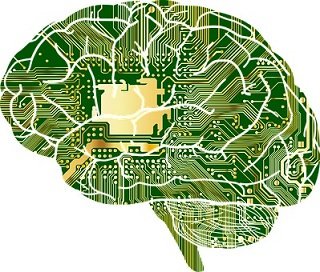
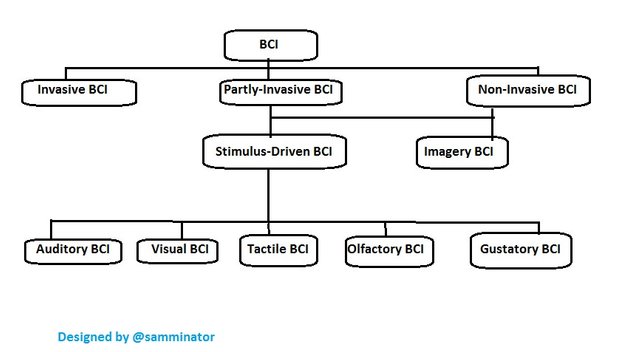
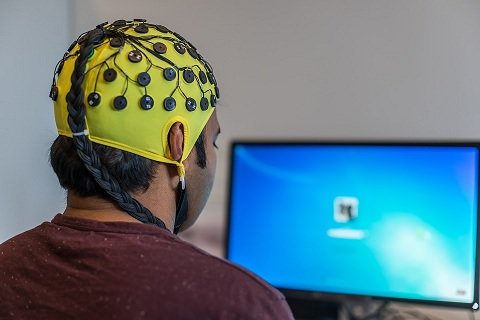
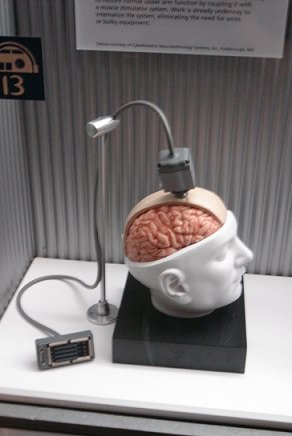
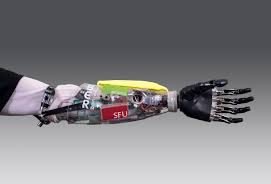


=======================================================================================
This post was upvoted by Steemgridcoin with the aim of promoting discussions surrounding Gridcoin and science.
This service is free. You can learn more on how to help here.
Have a nice day. :)
Being A SteemStem Member
It's an honour
Man you really tried in compiling and throwing more light on this subject matter. I am not a fan of implants as human body reacts differently. Even if the implant is tested okay, it might still affect many negatively. I think I would also go for the center guy partly invasive BCI and yes, my interest in BCI is ability of use it to control robots (or bionics) and machinery, sounds really cool to me. Kudos once again.
Lol. I guess we have similar interests. Thanks a lot for the nice comment, baba
I'm wowed at the diverse possibilities presented by brain computer interface. The dividing line between technology and biology is really fading.
@samminator, I will like to know something however.
Can we access our memory through this technology?
That's actually the idea. Maybe soon, we would be able to upload our brain data (memory) into a computer system
That would be interesting. We would be able to recall a lot from the past.
I lost my Debit card this afternoon and my brother was asking me some questions such as what I remembered last about the card and any related activities. But I could not recall.
When I was going through your post I imagined tracing back my steps. I imagined how helpful that could have been if BCI is capable.
Thanks!
Lol. This sounds hilarious. But the truth is; some technological inventions started off as weird and hilarious ideas
You're absolutely right. Hilarious but painful on my path.
I can relate bro. Sorry about your debit card
Thanks brother!
For me, some pairs are just always hot. The Brain and computer, wow, that's a pair I love. I'm amazed at the possibilities that Brainternet offers, and partly-invasive BCI is very fine by me. I've enjoyed reading through, almost looked like sci-fi.
Lol. Why is everyone going for the partly-invasive BCI? :p
Good post overthere! With BCI, General AI is achievable
Thanks a lot for coming around
I've always found the idea of brain-computer interfaces intriguing, and I think we could probably achieve the technical know-how to make all of those ideas work within the next decade. But the problem will be testing. Even with ample volunteers, any research would still have to jump through the hoops to ensure testing on humans was safe, and that can take years. That may keep progress lagging behind technical ability.
Why wait till next decade when the possibilities have arrived? :p
Ok I'll chose the non invasive bci if you don't mind! 😉
And I keep the word electroencephalographically in mind for my next game of scrabble! 😋
Interesting post. Thanks for sharing.
Sure. But just know that the signals produced will not be as strong as in the invasive BCI. :D
This subject is really fascinating because the potential of this is almost limitless, and this is probably the first step towards a complete integration of the mind with a synthetic environment.
Well said buddy. The potential in this is almost limitless.
Thanks a lot for dropping by
Hehehe.
Anything that has do with the brain always make me have this feeling. But this is an amazing technology which I could manage. Especially the one that doesn't have to do with surgery. Hehehehe 😂😂
Lol. You're not alone. Some other people have reservations when it comes to hacking of the brain. Maybe you'll go for the non-invasive BCI though
I will go for that over and over again.. The idea of having needle on my brain.. I can't imagine it 😂😂